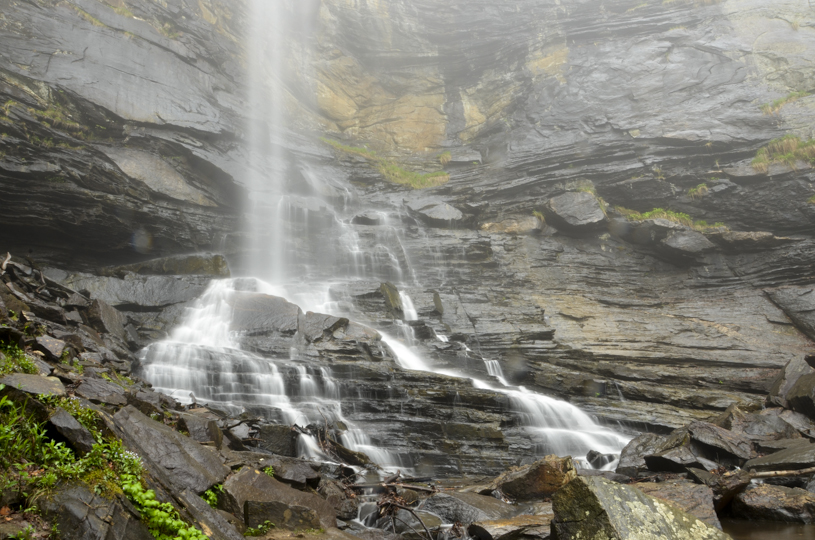Veganism: It’s about Love
Love for our Planet, our home that we live on and get to enjoy for our entire lives. How lucky that we live on this beautiful planet! Isn’t it worth making the best choices for Mother Nature?
Consider this: Did you know our eating habits are fueling the destruction of our planet? Or that our insatiable appetite for steak, chicken or ice cream is causing acres and acres of the Amazon Rainforest to be cut down at unprecedented rates? How do you feel about being part of the problem? Are you willing to make changes for the good of our planet?

Researchers at the University of Oxford found that “Since 1970, humans have wiped out 60% of animal populations. The three leading causes ALL relate to the consumption of animals: animal agriculture, eating wild animals, and fishing.”
Animal agriculture is extremely destructive to our planet and is a driving contributor to greenhouse gas emissions, biodiversity loss, species extinction, deforestation, water scarcity, air and water pollution, loss of indigenous peoples, and risks of antibiotic resistance and pandemics. According to one report, an estimated 70 percent of deforestation in the Amazon basin can be attributed to cattle ranching.

According to One Green Planet, “Brazil is the world’s largest exporter of beef. Between 1996 and 2004, the total export value of beef increased tenfold from $1.9 million to $1.9 billion, making Brazil the world’s largest beef exporter. It has the largest commercial cattle herd of approximately 180 – 190 million head. The government of Brazil offers loans of billions of dollars to support the expansion of its beef industry. Approximately 200 million pounds of beef is imported by the United States from Central America every year.”
Beef is the most carbon-intensive form of meat production on the planet.
The United Nations Food and Agriculture Organization finds “that beef production gives rise to more greenhouse gases than the transportation industry.” Look at that again! Beef production makes more greenhouse gasses than the entire transportation industry which includes cars, trucks, buses, trains, planes, subways, motorcycles… How is it that this isn’t a well-known fact, being told again and again at ALL of the news sources?! (Many are bought and paid for by all of the industries that have something to lose– big agriculture, big pharm, and the government who pays millions of dollars in farm subsides each year.)
Scientific American says, “Large-scale expansion of agriculture at the expense of the forest could entail the loss of almost two-thirds of the Amazon’s terrestrial biomass by later this century, with grave consequences for the climate and agricultural production, according to an analysis by Brazilian and U.S. scientists.”
WWF says,
“Extensive cattle ranching is the number one culprit of deforestation in virtually every Amazon country, and it accounts for 80% of current deforestation (Nepstad et al. 2008).
Alone, the deforestation caused by cattle ranching is responsible for the release of 340 million tons of carbon to the atmosphere every year, equivalent to 3.4% of current global emissions. Beyond forest conversion, cattle pastures increase the risk of fire and are a significant degrader of riparian and aquatic ecosystems, causing soil erosion, river siltation and contamination with organic matter. Trends indicate that livestock production is expanding in the Amazon.”
Earth.org speaks of the Amazon rainforest, saying it is “responsible for 20% of the world’s oxygen production. Spanning nine countries – Brazil, Bolivia, Peru, Ecuador, Colombia, Venezuela, Guyana, Suriname and the French Guiana – the Amazon hosts an astonishing array of life, boasting over 40,000 species of plants, 3,000 species of fish, 1,300 species of birds, 430 species of mammals, and 2.5 million species of insects. Beyond its role as a sanctuary for diverse flora and fauna, the Amazon serves a critical role in mitigating climate change by absorbing carbon dioxide from the atmosphere and storing it in plant matter in the soil.”
According to Plant Based News, “Growing soy to feed factory farmed animals is another major threat to the Amazon. Every year, the UK imports over three million tonnes of soy from South America to feed animals on intensive farms (primarily chickens). To produce this amount of feed requires 850,000 hectares.”
Researchers at the University of Oxford conducted a study looking at nearly 40,000 farms in 119 countries.
Afterwards they concluded, “The most impactful way to reduce your impact on Planet Earth is to adopt a vegan diet…it is far bigger than cutting down on your flights, or buying an electric car.”
We breed roughly 70 BILLION land animals to kill and eat each year. To feed those 70 BILLION animals we need large amounts of crops and use nitrogen fertilizers which seep into the oceans. This causes algal blooms acidifying the water and causing ocean dead zones.
A 2021 report published by UNICEF found that 1 billion children are at extreme risk from the impacts of climate change. Coastal flooding, infections diseases, heat waves, and water scarcity are some of the reasons why species are becoming extinct 100 times faster than they would without animal agriculture.
Animal agriculture is the primary emitter of methane and nitrous oxide. Farm animals product around 450 million tons of manure every year.
All of these greenhouse gases heat up our planet. Animal agriculture is responsible for 11-20% of all greenhouse gas emissions. Animal agriculture takes up 83% of land and contributes 56% of food emissions but only makes up 18% of the calorie supply.
So the science CLEARLY shows that our appetite for beef and dairy is fueling the list of terrible things happening to our planet! Instead of waiting for our leaders, or government to jump in and take action, each of us can change to make a difference, simply by changing your diet.
A vegan diet produces 50% less CO2.
A vegan dies causes 90% less rainforest destruction
A vegan diet causes 90% less famine
A vegan diet causes 75%less antibiotic resistence
A vegan diet reduces wildlife destruction by 60%.
A vegan diet uses just one third of the land compared to a meat-based diet.
A vegan diet uses 50% less water.
A vegan diet causes 75% less health care spending and at least a 50% reduction in cancer, diabetes, heart disease and obesity.
For anyone who calls themselves an environmentalist, who loves our planet, or who claims to care about the future of Earth, the answer is clear: Go Vegan! To refuse this change is to continue to be part of the problem. Instead, Be the Change!
Resources:
The Washington Post: Devouring the Rainforest
17 Environmental Benefits of Veganism as Proven by Science.
World Animal Foundation on overfishing the oceans
How Animal Agriculture is Accelerating Global Deforestation
Veganism is the single biggest way to reduce our environmental impact, study says
Science News Explores: The Amazon is in Trouble.
CO2 emissions in the meat industry
Veganism: why we should see it as a political movement rather than a dietary choice
The Independent facts about veganism


